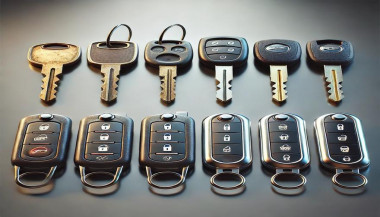The automotive industry has undergone extraordinary changes in the last 150 years. From the earliest steam-powered engines to today’s smart, electric vehicles, cars have become symbols of innovation, convenience, and human progress. This article explores the most groundbreaking innovations that have defined car history, driving us into the future.
1. The Birth of the Car (Late 19th Century)
The late 1800s marked the beginning of the automobile industry with the invention of the first cars.
- Key Milestone: Karl Benz’s creation of the Benz Patent-Motorwagen in 1885-86 was a game-changer.
- Impact: For the first time, individuals could travel independently without relying on horses or trains.
This innovation laid the foundation for a new era of personal transportation.
2. The Rise of Mass Production (Early 20th Century)
The early 1900s brought cars to the masses through assembly line production.
- Key Milestone: Henry Ford’s introduction of the moving assembly line in 1913 revolutionized car manufacturing.
- Impact: Cars became affordable and accessible to ordinary people, leading to the widespread adoption of automobiles.
The Model T became a symbol of this industrial transformation.
3. The Era of Safety Innovations (1950s–1970s)
As cars became common, safety innovations took center stage.
- Key Milestones:
- Seatbelts: Volvo introduced the modern three-point seatbelt in 1959.
- Airbags: Developed in the 1970s to provide additional protection during crashes.
- Impact: These innovations drastically reduced injuries and fatalities, making cars safer for all passengers.
Safety continues to be a driving force behind car innovations today.
4. Fuel Efficiency and Environmental Consciousness (1980s–2000s)
The late 20th century witnessed a shift towards eco-friendly car innovations.
- Key Milestones:
- Introduction of hybrid cars like the Toyota Prius (1997).
- Stricter emission regulations led to cleaner, more efficient engines.
- Impact: Consumers and manufacturers started prioritizing fuel efficiency and reducing environmental impact.
This period laid the groundwork for the electric car revolution.
5. The Digital Revolution in Cars (2000s–2020s)
Modern cars are no longer just machines; they’re smart devices on wheels.
- Key Innovations:
- GPS Navigation: Real-time navigation made travel simpler and safer.
- Infotainment Systems: Touchscreens and voice controls for entertainment and information.
- Driver Assistance: Features like parking sensors, adaptive cruise control, and collision alerts.
- Impact: Technology has transformed driving into a more connected, comfortable, and efficient experience.
6. Electric and Autonomous Cars (The Future is Here)
The future of cars lies in sustainability and autonomy.
- Key Innovations:
- Electric Vehicles (EVs): Companies like Tesla popularized EVs, offering zero-emission driving.
- Autonomous Driving: Self-driving technology is advancing rapidly, promising safer and more efficient transportation.
- Impact: Electric and autonomous cars represent a monumental leap towards reducing environmental impact and redefining mobility.
The next 50 years will likely see even bolder transformations.
From steam engines to self-driving electric vehicles, the car has come a long way. Each era brought innovations that shaped not just how we travel but also how we live. As technology continues to evolve, the possibilities for cars seem endless. Whether it’s improving safety, reducing emissions, or offering autonomous capabilities, cars will remain at the heart of human progress.

 (1)_1736345323.jpg)

_1745478488.jpg)

